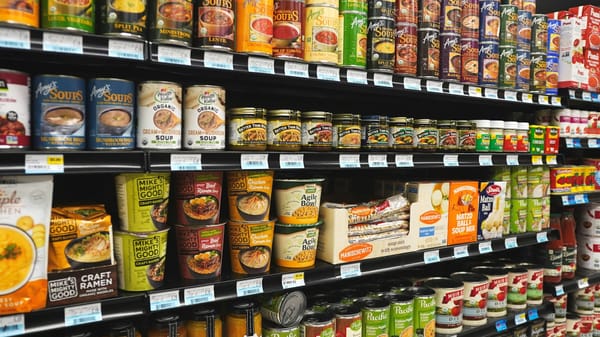Tips for Observing Healthy Fasting during Ramadan

As we're in the month of Ramadan, eating healthy is important. It makes fasting easier and guarantees a productive Ramadan. Staying healthy while fasting requires preparing your mind even before the start of Ramadan. However, this article will explore a few tips for observing healthy fasting during Ramadan.
1. Understand the purpose of fasting.
It's essential to understand the reason behind why we are fasting. As said in the Quran 2:183 :
"O you who believe, fasting is prescribed for you as it was prescribed for those who were before you, in order that you may learn taqwa (piety)."
Fasting involves:
- Keeping away from food.
- Understanding what the poor people go through on a daily basis.
- Making us stronger spiritually.
Fasting also helps you focus more on worshiping Allah (SWT). The physical part of fasting helps to detoxify our bodies from inflammation and diseases. Hence, it's essential to eat nutritious meals to ensure the detoxification process goes through smoothly.
2. Hydrate! Hydrate!! Hydrate!!!
Hydration is a critical part of your diet during Ramadan. Many people make this mistake by prioritizing food over hydrating themselves. Hydration implies increasing your intake of hydrating foods and avoiding dehydrating foods as much as possible. Fruits, such as cucumber, watermelon, celery, and strawberry, have the highest amount of hydration among all foods.
So, it's necessary to eat more fruits to get to the hydration level your body needs. It's also worth noting that you should avoid dehydrating foods like caffeine, fizzy drinks and cola.
3. Nutritious Portion Size
It's recommended not to eat too much during Iftar and Suhoor. Your portion size is essential, as it takes the body about 20 minutes to know that it has had enough. Eating appropriately when you're hungry will reduce body stress and give you more energy instead of eating too much.
Remember, the whole idea of Ramadan is to eat less and detoxify. Eating your nutritious meal appropriately is one of the best ways to achieve healthy fasting in Ramadan.
4. Avoid Strenuous Exercise
If you have the habit of going to the gym to exercise, you can shift your gym appointment to the evening. However, strenuous exercise during Ramadan isn't recommended as it can dehydrate you faster. Taking short walks in the morning and evening, plus a few stretches, can give you the exercise your body needs during this month.
5. Incorporate Whole Grains in Your Meal.
Whole grains, cereal, and oats are said to have 100% fiber that can hold your body together while fasting. These foods will provide the needed energy to go about your day-to-day activities even though you're fasting.
Foods to Incorporate in your Sahoor
- Protein sources like milk, eggs, nuts, etc
- Healthy fats like nuts and olives
- Fresh fruits with high water content, like celery, pear, and watermelon
- Whole-grain meals like brown rice, whole-grain bread and oatmeal
- Eat plenty of vegetables like lettuce, tomatoes, and spinach
- Smoothies made from vegetables, fruits, and healthy fats.
Tips for Healthy Iftar during Ramadan
- Break your fast with dates or water
- Don't drink too much water
- Avoid fried and salty foods
- Drink healthy smoothies and green juices instead of sugary drinks.
- Try not to eat late into the night, so your tummy can be ready for Sahoor.
Final Thoughts
With this article, you'll adhere to the tips for observing healthy fasting during Ramadan. You can strive to follow the tips above to suit your desires and health status in their blessed month.





